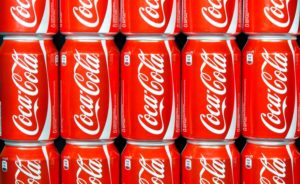Emails between the Coca-Cola Company and the Centers for Disease Control and Prevention (CDC) demonstrate the company’s efforts to influence the CDC for its own benefit.
That’s according to a study published in The Milbank Quarterly.
Coca-Cola’s contact with the CDC shows the company’s interest in gaining access to CDC employees, to lobby policymakers, and to frame the obesity debate by shifting attention and blame away from sugar-sweetened beverages.
The study is based on emails and documents obtained via the Freedom of Information Act by U.S. Right to Know, a nonprofit consumer and public health group.
The investigation into Coca-Cola is of particular relevance because the CDC has recently faced criticism for its links to manufacturers of unhealthy products, including those of sugar-sweetened beverages.
The emails demonstrate Coca-Cola’s efforts to “advance corporate objectives, rather than health, including to influence the World Health Organization,” the study says.
“It is not the proper role of the CDC to abet companies that manufacture harmful products,” said Gary Ruskin, co-director of U.S. Right to Know. “Congress should investigate whether Coca-Cola and other companies that harm public health are unethically influencing the CDC, and subverting its efforts to protect the health of all Americans.”
“Once again we see the grave risks that arise when public health organisations partner with manufacturers of products that pose a threat to health,” said Martin McKee, professor of European public health at the London School of Hygiene & Tropical Medicine. “Sadly, as this example, and more recent ones in the United Kingdom show, these risks are not always appreciated by those who should know better.”
The report found that the emails “demonstrate efforts by current and former Coca Cola staff to influence the CDC by building relationships, attempting to frame the debate on the role of SSBs in obesity, and using existing contacts to lobby decision makers.”
“These activities are consistent with those observed in previous interactions of SSB companies with policymakers, academia, and the public,” the report found. “These activities may contravene ethics guidelines for CDC staff, which ask staff to consider potential conflicts of interest before engaging with potential partners.”
“These guidelines state that the CDC should not engage in partnerships in which the ‘potential partner represents any product that exacerbates morbidity or mortality when used as directed.’ In addition, the CDC’s ethics guidelines on gifts, including those given via the CDC Foundation, state that the CDC should not accept gifts ‘if acceptance of the gift could compromise the integrity of a government program or any official involved in that program.’”
The paper concludes: “It is unacceptable for public health organizations to engage in partnerships with companies that have such a clear conflict of interest. The obvious parallel would be to consider the CDC working with cigarette companies and the dangers that such a partnership would pose. Our analysis has highlighted the need for organizations like the CDC to ensure that they refrain from engaging in partnerships with harmful product manufacturers lest they undermine the health of the public they serve.”
The Milbank Quarterly study was co-authored by Nason Maani Hessari, research fellow at the London School of Hygiene & Tropical Medicine, Gary Ruskin, co-director of U.S. Right to Know, Martin McKee, professor at the London School of Hygiene & Tropical Medicine, and, David Stuckler, professor at Bocconi University.
U.S. Right to Know is currently litigating two FOIA cases to obtain more documents from the CDC.
In February 2018, U.S. Right to Know sued the CDC over its failure to comply with its duty under FOIA to provide records in response to six requests about its interactions with The Coca-Cola Company. In October 2018, CrossFit and U.S. Right to Know sued the Department of Health and Human Services seeking records about why the Foundation for the National Centers for Disease Control and Prevention (CDC Foundation) and the Foundation for the National Institutes of Health (NIH Foundation) have not disclosed donor information as required by law.
